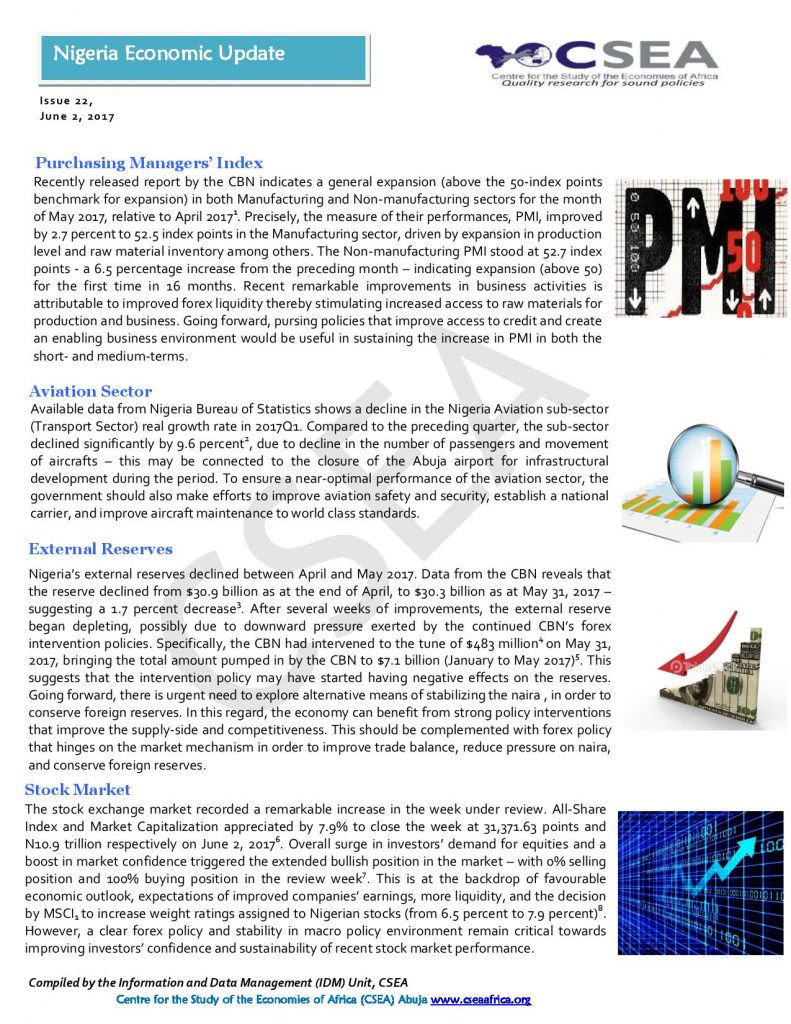Macroeconomic Report & Economic Updates

July 4, 2017
Nigeria Economic Update (Issue 22)
Available data from Nigeria Bureau of Statistics shows a decline in the Nigeria Aviation sub-sector (Transport Sector) real growth rate in 2017Q1. Compared to the preceding quarter, the sub-sector declined significantly by 9.6 percent, due to decline in the number of passengers and movement of aircrafts this may be connected to the closure of the Abuja airport for infrastructural development during the period. To ensure a near-optimal performance of the aviation sector, the government should also make efforts to improve aviation safety and security, establish a national carrier, and improve aircraft maintenance to world class standards.
Related
Transparency Deficits In The Disclosure Of Oil Sector Information In Nigeria
This brief examines the challenges in the discharge of
statutory transparency roles by strategic regulatory institutions in the oil
sector and also identifies policy interventions to improve access to
information on key oil sector processes and transactions.
Net Domestic Credit And Currency In Circulation (CIC):
Net Domestic Credit: Rising net credit to government and private sector have driven the upward trend in NDC, especially post-2008. In 2016Q1, NDC grew largely on the account of the rise in banking sec
